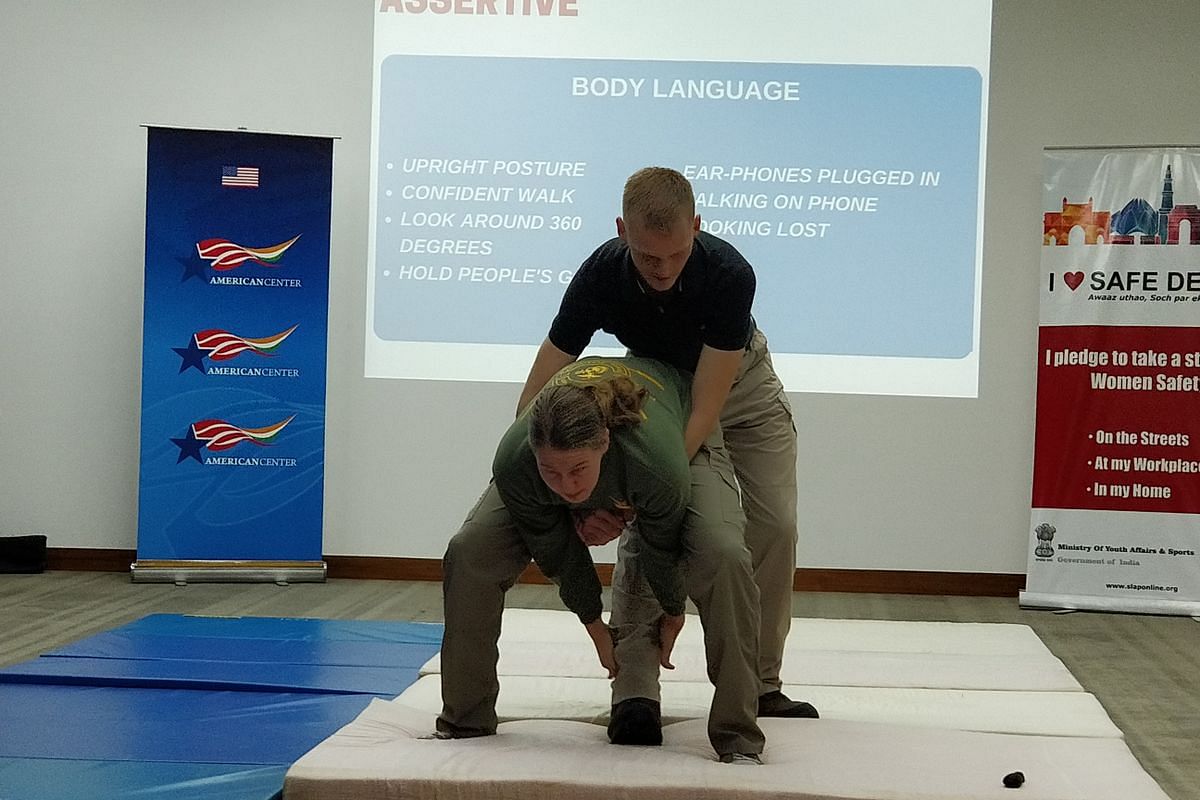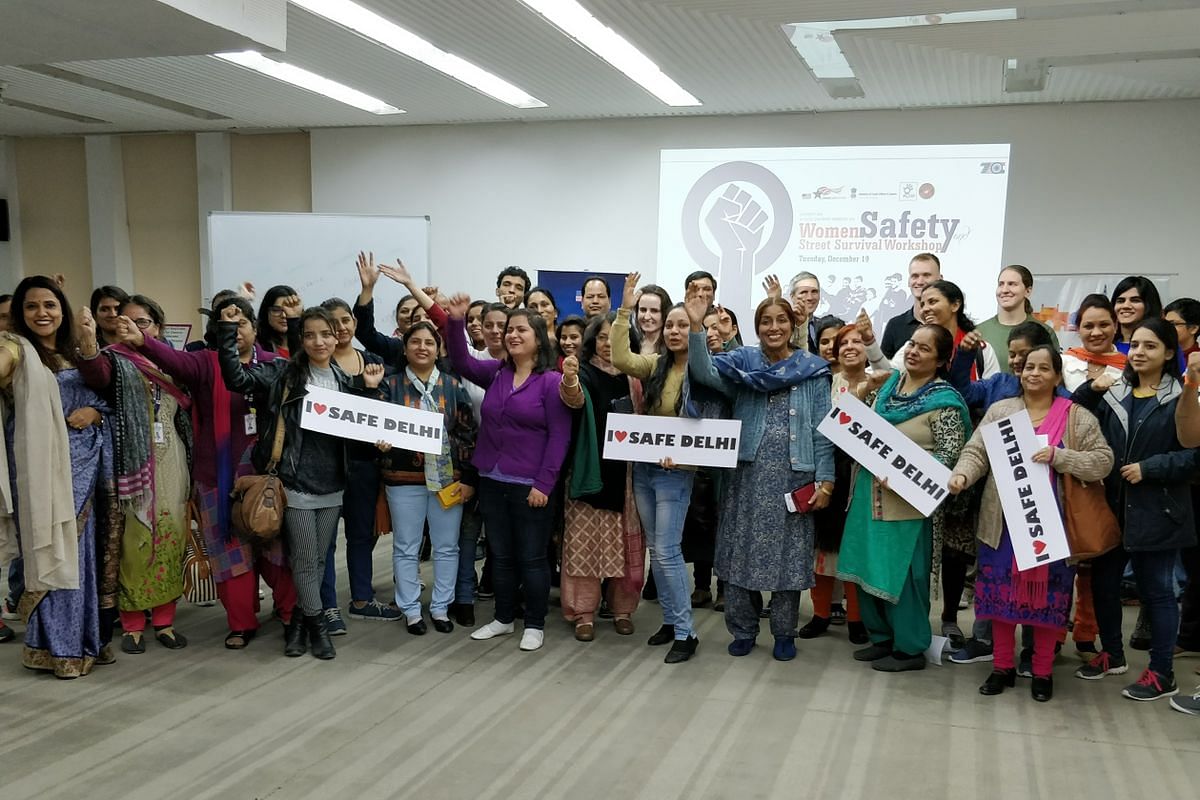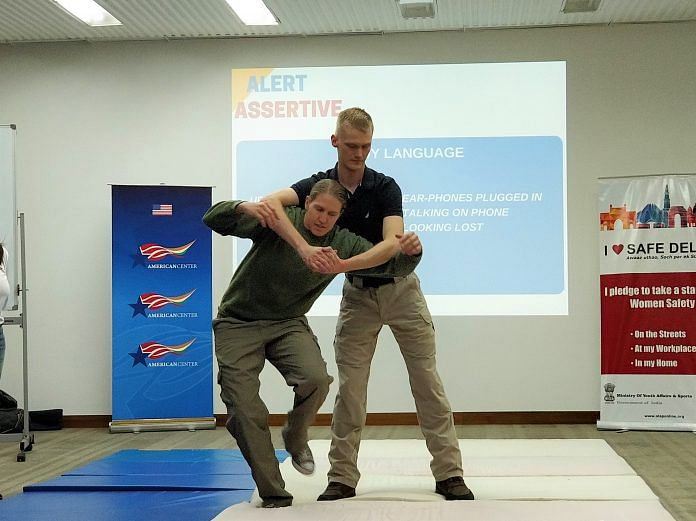Attending a self-defence workshop conducted by two US Marines was an eye-opener. Violence, whether on the battlefield or on Delhi’s streets, looks the same.
The old adage goes ‘desperate times call for desperate measures’, and when it comes to the safety of women on Delhi’s streets, nothing could be more true. The situation is so desperate that it takes two US Marines to conduct an interactive self-defence workshop, like they did in New Delhi last week.
Rigorously trained for the highest levels of combat, Marines are accustomed to dealing with dangerous situations that induce extreme stress and require split-second reaction times. A girl growing up in Delhi can relate to this experience in more ways than one would think.
I’ll admit that a comparison between Delhi’s streets and an active war zone is a bit of a stretch, but based on Sergeant Liz Dollinger’s advice, women should practice similar methods of vigilance and heightened environmental intuition when it comes to navigating our dimly-lit alleyways.
“We apply what we call situational awareness, in which we train ourselves to study the environment around us, and then preempt ‘what if’ scenarios by playing out simulations in our heads,” said Dollinger, answering a question from the audience about the unpredictability of street crimes.
“If you’re going into an alley, gauge the possibility that someone will jump out at you. Decide what you’re going to do if that happens,” she said.
“Women absolutely stand a chance in a fight, it’s just about knowing your strengths and exploiting the opponent’s weaknesses,” said Dollinger. Both the Marines, as well Delhi-based NGO Street Level Awareness Programme (SLAP) founder, Mriganka Dadwal, spoke about the importance of confident body language.
“You must pretend like you know what you’re doing, even if you don’t, because your attacker doesn’t know that,” Dollinger said.
Why it resonated with me
My own experience of being a woman walking Delhi’s streets is similar to avoiding potential landmine explosions – one must watch one’s step, and tread lightly. I went into this self-defence workshop expecting someone like Dollinger to know little about the context that I grew up in – a proud Delhi girl who goes out at night with her head down, clutching car keys between her knuckles because to survive here means to practice situational awareness without even intending to. I mean what would an American citizen know about the gritty reality of my violent, ‘third-world’ country?
Turns out, violence looks the same everywhere. For a Marine, even more so.

A study conducted by Emory University establishes a link between a particular stress hormone, called PACAP, and higher chances as well as more severe symptoms of PTSD (post-traumatic stress disorder) in a person. However, the association between PACAP and PTSD was statistically significant only in women.
What makes this study interesting is the discovery that certain receptors of this stress hormone weren’t inherent in a woman’s genetic code, but were found in the epigenome. Epigenetic changes occur when environmental influences change biology over time — “suggesting that people who are not genetically hardwired to be vulnerable to PTSD may become vulnerable through experience.”
This means that consistent exposure to the threat of violence, rape, harassment, abduction, stalking etc. has actually changed the molecular structure of women’s genes to be more prone to stress, trauma, and paranoia.
PTSD is a disorder commonly found in veterans of war, and watching a female US Marine demonstrate self-defence manoeuvres made me realise that perhaps there really isn’t that much difference between her and me after all. We both fight our battles every day, and maybe I am, and have always been, more Marine than I ever imagined I could be.

If you’re a woman in Delhi, to borrow another military expression, “Eyes front, soldier!”



